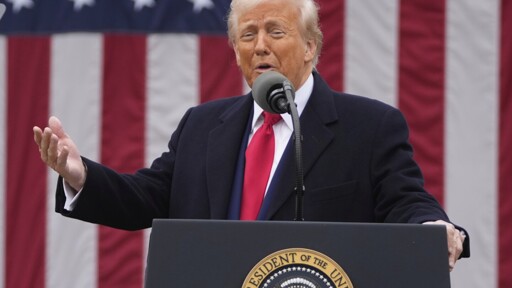Among the reciprocal tariff levels Trump announced:
China: 34%
European Union: 20%
South Korea: 25%
India: 26%
Vietnam: 46%
Taiwan: 32%
Japan: 24%
Thailand: 36%
Switzerland: 31%
Indonesia: 32%
Malaysia: 24%
Cambodia: 49%
United Kingdom: 10%
Rest of the world: 10%



Wrong.
The best things you can do are invest in green energy and energy storage projects, create polices that cap (and actually punish) carbon emissions, upgrade to more efficient infrastructure… All things that take money, a functional government and a functional economy.
What we learned from COVID, is that crashing the economy does not really slow down climate change, it just hits the pause button for a little bit, and then it resumes at the same or greater speed.
pause buttons is all its about. emissions wont stop after energy generation is zero-emission. it just will be slower by a chunk (like 60%ish)
people will still breed cows/not turn vegan (up to 75% of total 20%ghg emissions) and mobility will also remain (lets just say by half without derailing too much - so half of total 20%ghg emissions)
Also theres studies on how we are kinda jet lagging in resulted heating and on how recordings of right before pre-industrial era levels also could be different, lower in total and therefore more extreme heating affecting tipping points.
so a pause like that would be great - because all we have left is time and smart people (although kinda marginalized nowadays and I dont really believe in the success of that in short term) we have crossed 1,5° and therefore are in tipping point cascade (which is irreversable) territory.
Not wrong. But I will point out that this will funnel a lot more money to China, which has been investing much more heavily in greentech than the US has. So overall it could actually be a plus - for climate change at least.
Just a silly joke of course. Gallows humor. In order to combat climate change you’d have to re-design how we live and work and our economic system and reset existing wealth inequalities, re-design and rebuild thousands of industrial processes, and change multiple systems that are in place. For example you’d at least have to:
Basically what we learned is that it’s practically impossible for humanity as a global civilization to stop climate change. Most people can’t even bear to think about the steps it would take.
Of course, developing the technology for a sustainable circular economy for the basic needs (food, energy, education, building shelters, communication etc) is still worthwhile.